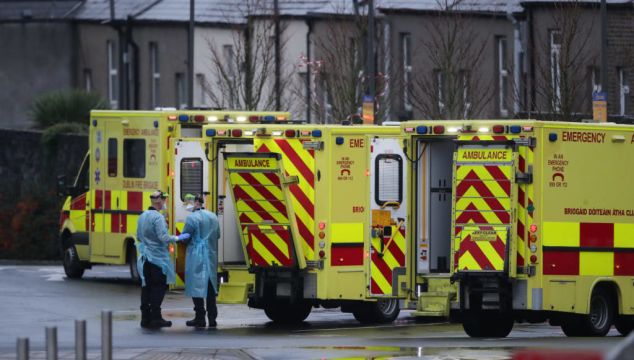Staff absences caused by the Omicron wave could seriously impact Northern Ireland’s health system in the weeks ahead, hospital bosses have warned.
In a joint statement, the five health and social care trusts and the NI Ambulance Service said further reductions in the workforce would heap more pressure on already overstretched colleagues.
There are concerns the health system, and public services in general, could be hit hard if the numbers of workers absent from work as a result of catching Covid-19, or because they are self-isolating, surge as the Omicron wave reaches a peak in mid-January.
Speaking on behalf of the six medical directors across the region, Dr Seamus O’Reilly, chief executive of the Northern Trust, said: “We know how infectious this particular variant is, and we know that case numbers are already high.
“Alongside the public health threat, we are also extremely concerned about the number of health and social care staff who might not be available to work due to Covid-19 infection or self-isolation at the very time when we will need them most.
“This could be the factor that causes most pressure on all services over the coming weeks, not just in hospitals but also much-needed community services and support and administrative services.
“There is also the possibility that we will see increasing numbers of patients being admitted to hospitals as a result of Omicron. This would be on top of the significant pressures we have already seen on our health and social care system.
“It is vitally important that people only come to hospitals if their condition dictates that they need to be there.
“Emergency departments are there to deal with genuine life-threatening emergencies, for example chest pain, breathing difficulties, loss of consciousness, stroke or sudden confusion.
“In any situation where resources are likely to be as depleted as we anticipate, it is vital that we are able to prioritise those who are most in need of our attention and that they receive timely and appropriate treatment and care. So, please use alternatives where possible.”
Dr O’Reilly said the situation meant patients being brought to hospital by ambulance may not necessarily be taken to their most local facility.
“Ambulance response times will also be longer and people may have to consider making their own way to hospital if they are able to do so,” he added.
Staffing pressures
Stressing that pressures in staffing would not be confined to acute hospitals, Dr O’Reilly said staff working in the community would also likely be affected.
“The problems in securing adequate domiciliary care provision both in the independent sector and trusts have been well rehearsed over the past few months,” he said.
“Those problems won’t go away overnight and staff testing positive and having to self-isolate will continue to complicate the picture.
“I would also stress to patients and their relatives that hospitals are not the safest places to stay once the period of required acute care is at an end.
“I do appreciate that many patient discharges are not straightforward but remaining in a hospital runs the very real risk of new complications occurring such as infections which, at the very least, will only make the situation worse.
“I’m asking patients and families to play their part and co-operate with us in accepting temporary placements in care homes when these are offered. In some cases, families may be able to provide temporary support at home.
“Overall, we hope the public will understand that the health and social care system is unlikely to be able to maintain some services due to inevitable staff shortages in the coming weeks.
“In that event we would appeal for their help and patience as staff do their best in what could be very difficult circumstances.”
Dr O’Reilly urged people to get their vaccination or their booster jab, limit their contacts over Christmas and take lateral flow tests before meeting friends and family.







